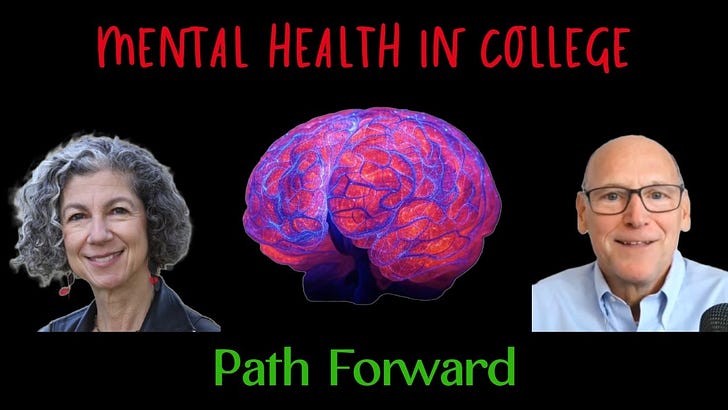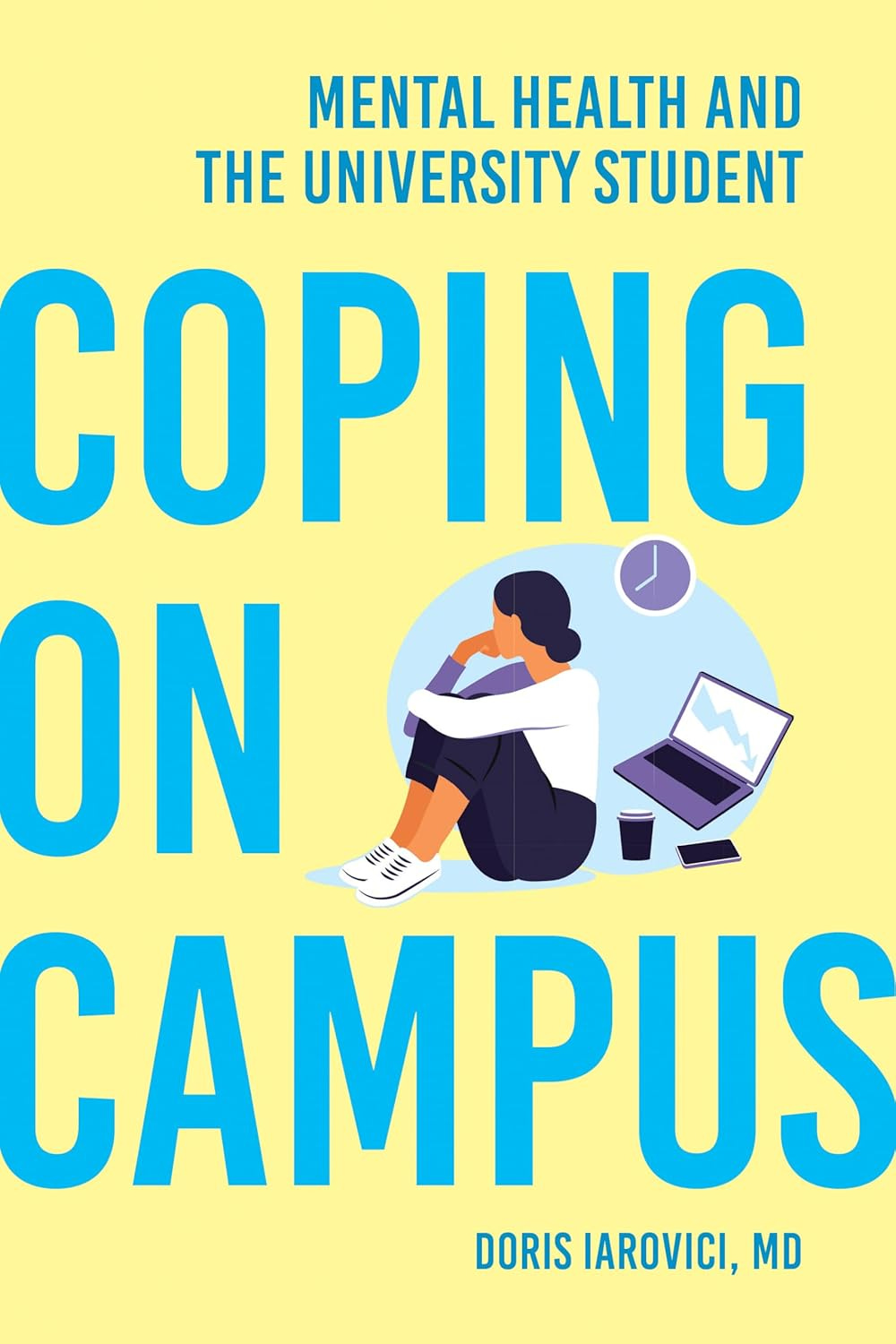The Emerging Adult: College Mental Health Challenges
Interview with psychiatrist Dr Doris Iarovici
In my latest episode of Exploring Prosperity, I spoke with Dr. Doris Iarovici, a psychiatrist at Harvard University Health Services and author of "Coping on Campus: Mental Health and the University Student." With over 20 years treating college students, Dr. Iarovici offers unique insights into this critical issue.
The Numbers: Concerning but Improving
The statistics are worrying. Depression rates have nearly doubled over the past decade, with 41% of college students showing signs of depression. Anxiety affects about 36% of students, and around one-quarter take psychiatric medications.
Yet for the first time in almost 20 years, these numbers are starting to level off. Depression rates recently fell to 38% from 41%, and eating disorders decreased from 14% to 13% - small changes, but the first positive shift after decades of steady increases.
Thank you to our sponsors:
Truflation. Learn more about the details behind the REAL inflation rate at https://truflation.com/
Foundation.xyz- Learn more about their cutting edge password protection devices at https://foundation.xyz/
"Emerging Adulthood": A New Life Stage
Dr. Iarovici explained how psychologist Jeffrey Arnett introduced "emerging adulthood" around 2000, initially defining it as ages 18-24. Notably, just five years later, Arnett extended the upper range to 29, reflecting how this developmental phase has stretched in modern society.
Today's young adults reach traditional milestones (marriage, career, children) later than previous generations. More surprisingly, psychological development that once happened during adolescence has shifted to the college years and beyond.
Find more of Dr Iarovici’s work at www.dorisiarovici.com
Changing Influences
Parenting approaches have evolved from "helicopter parenting" to what educators now call "snowplow parenting" - actively clearing obstacles from a child's path. While well-intentioned, this approach often leaves students without crucial problem-solving skills and resilience.
Social media significantly influences mental health trends, with research linking increased usage to higher rates of depression and anxiety among college students. Dr. Iarovici noted this is particularly concerning because social media platforms employ neuroscience techniques specifically designed to maximize engagement, creating patterns of use that can disrupt sleep and healthy development.
Mental health issues vary across institutions. Private universities show higher reported rates than public universities, while historically Black colleges show lower rates overall - possibly reflecting differences in awareness and access to care rather than actual prevalence differences.
Financial concerns create significant pressure, with college costs rising faster than inflation. Dr. Iarovici hears students describe themselves as needing to be "a good return on investment" for their parents, adding a burden that has intensified for current generations.
Cohort Effects and Loneliness
Today's college students report being twice as lonely as people over 65 - traditionally considered society's loneliest demographic. This prompted Surgeon General Vivek Murthy to launch his "We Are Made To Connect" tour of college campuses.
Dr. Iarovici discussed how specific age cohorts face unique challenges. Children whose schooling and socialization were disrupted by COVID restrictions in 2020 may face ongoing challenges as they mature. When asked whether today's college students will continue to struggle as they age, Dr. Iarovici expressed cautious optimism. Many people with mental health challenges in college go on to lead fulfilling lives, especially with proper treatment.
Reasons for Hope
Several factors give Dr. Iarovici cautious optimism:
Treatment works: Mental health treatment is effective, especially when accessible early.
Age brings improvement: Students over 30 report better mental health than those under 30.
Community matters: Creating environments with support and belonging promotes mental health beyond clinical interventions.
Dr. Iarovici emphasized that mental health exists on a spectrum. She's witnessed many students who struggled significantly yet thrived after receiving appropriate support - even students with serious conditions like schizophrenia succeeding at elite universities.
(This essay and interview were inspired by this article: “A Generation in Crisis”.)
Her balanced perspective neither minimizes students' genuine struggles nor catastrophizes about a "lost generation." Instead, she draws on developmental science to acknowledge these challenges while affirming human resilience. In her words, "Mental health is not all or nothing, and it does not begin or end in the treatment room."


